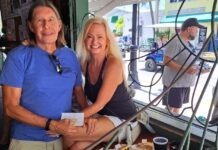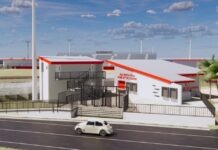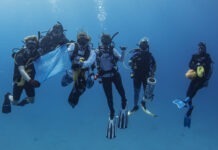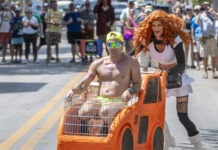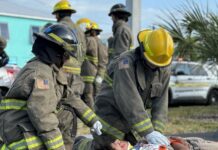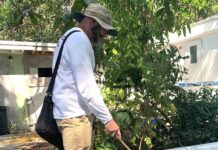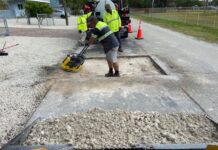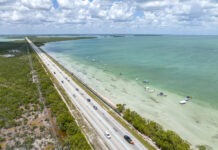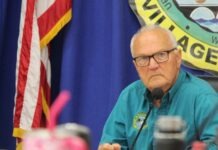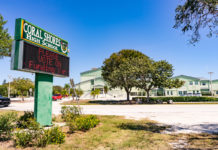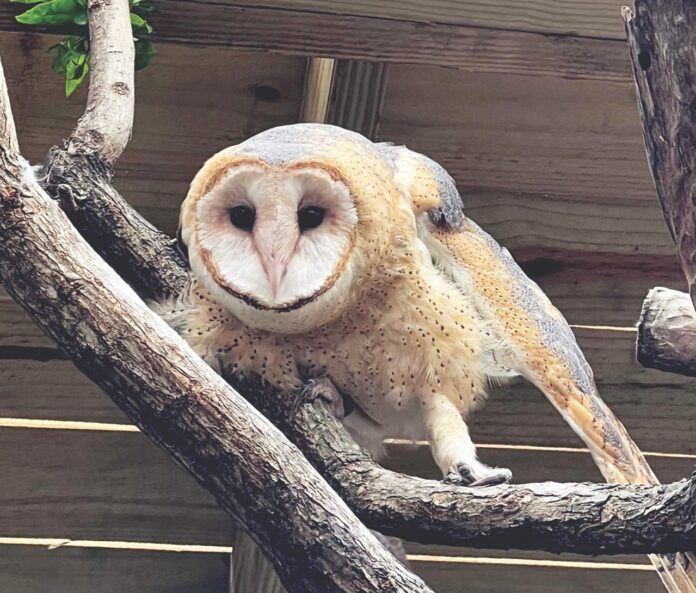
The Florida Keys Wild Bird Rehabilitation Center in Tavernier was established by Laura Quinn and incorporated in 1988. The Upper Keys Weekly recently sat down with Maggy Pollicino, outreach coordinator, to learn more about this essential nonprofit in our community.
It’s very helpful when people can bring the sick or injured birds to us. We service from MM 70 to MM 106. If people call us from the mainland, we don’t go up there for rescues, but if they can drop the bird off at Everglades Outpost, we will send an intern or volunteer to pick them up, so that’s kind of a good way that we can serve the Homestead or Miami area. There’s also the Key West Wildlife Center and Marathon Wild Bird Center, which both do great work. Permits do not allow us to focus on pets; we refer people to a veterinarian.
We have a board that tells us everything we need to know about our patients. Our baby season is from about now until June, so we start to have a ton of baby birds in the house.
The most common are songbirds and raptors like owls and hawks. People just find them in their yards. Occasionally we get a bigger bird like a spoonbill or a heron, but a lot of the bigger seabirds nest offshore on rookeries and such, so people aren’t coming across them as much. So it was amazing to help a frigate bird and release him back over the ocean.
A lot of the time, when they find the baby, there’s actually nothing wrong with them, so we encourage people by saying, “Okay, can you look for this or this?” And if this condition, if all of those are true, we want you to leave the baby alone so the parents can continue to care for it.
It’s a case-by-case basis because we want the absolute best chance that that baby is going to be in the wild with its parents but we have supplies that we can give people. If the bird needs to be popped back in the nest, but they can’t find the nest because it’s too high, we can give them little baskets and newspaper and supplies to tie it to a tree, and they may watch the parents come back, which is very fun.
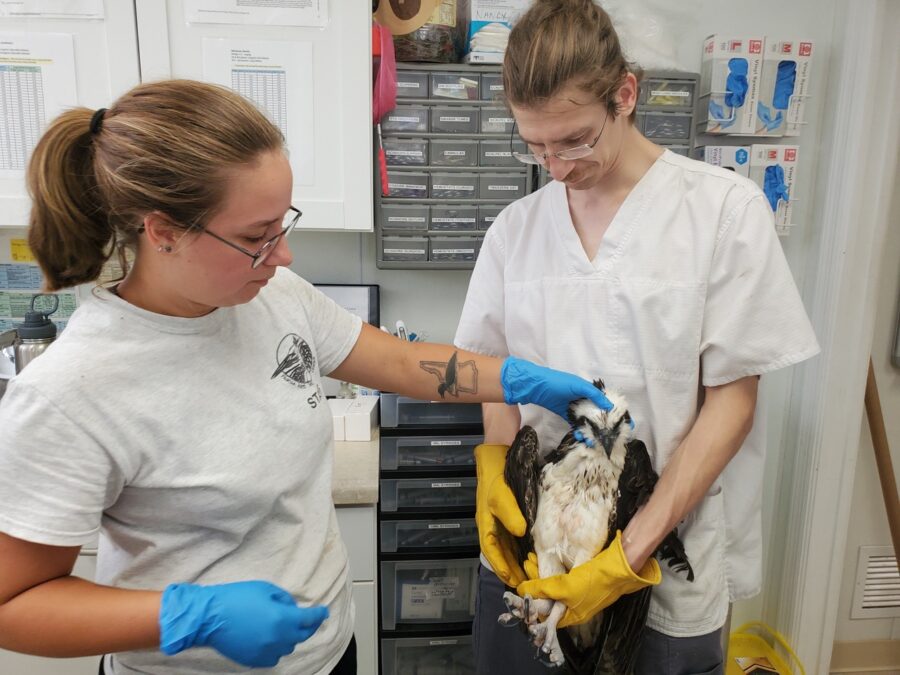
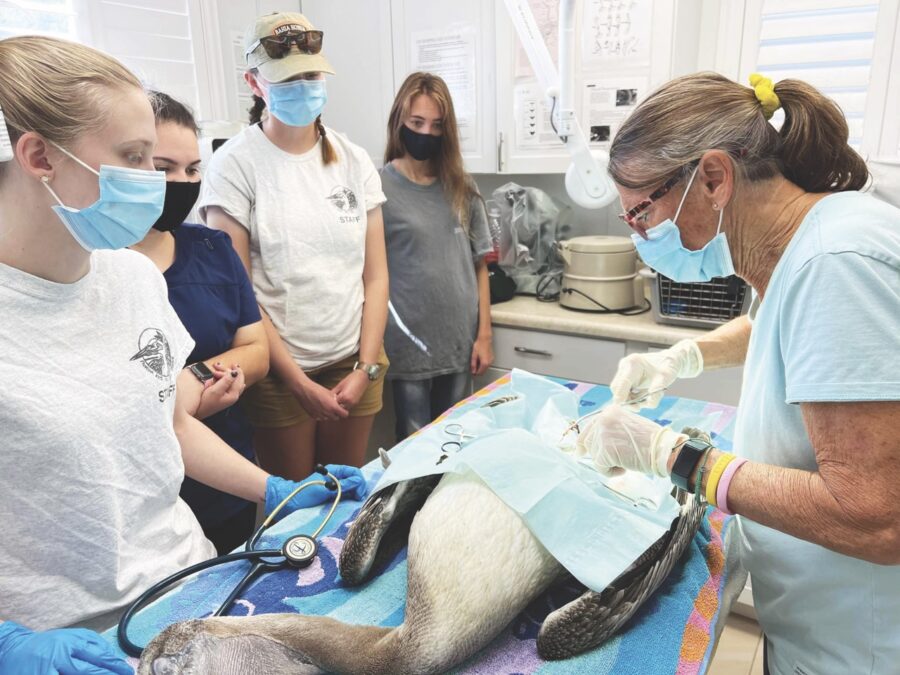
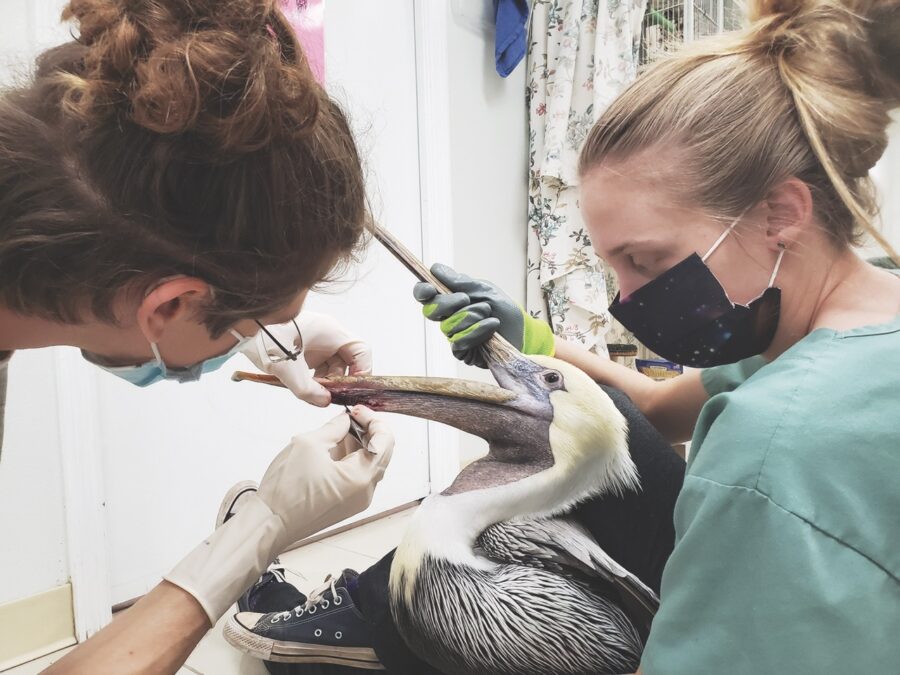
Our emergency room is where every bird coming through our doors comes first. The first thing we do is take a temperature because, just like with people or other animals, if a bird is too cold, the stress that can be induced by further handling can cause a lot more problems. So, we always take a temperature and make sure they’re warm enough to continue. If not, we put them in a crate, get warmed up with some sort of external heat source and then do a head-to-toe exam. We have an X-ray machine if we need to do that. We have all the supplies for wound care and splinting — all different issues.
They see us as predators and don’t know we are helping them. Some get familiar, but we don’t want that. We want to keep them as wild as possible because familiarity with humans can get them into trouble, particularly with pelicans. People might feed them at the marinas, and then they associate food with people. The birds might see a fisherman, and they’re like, “He has food at the end of this big long stick,” and they go after it, and they get hooked or some other similar injury.
We try to return birds as close to the spot we found them in as possible. With juveniles, you can be a little bit more flexible because they haven’t established any sort of territory yet. If we are getting a young bird in, unless we can renounce that bird within about 24 hours, we probably need to raise it until it can be released because the parents will abandon the nest if they don’t see their baby there for a while.
If a bird can catch live prey, that’s a good sign it can be released. We put the birds in a flight cage to see if they can fly properly and find their own food. There is a lot involved. We want to ensure they have the best chance of survival in the wild. Our mission is to get them back into the wild and at their best. Birds that are permanent residents (at the center) are because we are concerned they would not do well in the wild — again, it’s a case-by-case basis.
If babies come in by themselves, we give them a mirror so they can imprint on themselves. Birds tend to not do very well in the wild if they imprint on their caretaker. So if we get the same species of birds, we may put them together as long as they don’t have any parasites.
Our new office manager, Fredricka, aka “Fred,” recently retired from the sanctuary. She was the pet of our founder Laura Quinn, who passed away in 2010; she had her since the ’80s. Quinn had started by taking birds into her house, learning from Dr. Robert Foley, and had a community of volunteers that helped her. For Fred’s retirement party, we played Fred’s favorite movie, “Jurassic Park.”
I’ve been here for about a year-and-a-half; I was previously up in New Hampshire and saw this listing on an eco-job board and applied. I thought getting into the rehabilitation side of things would be interesting. After about a year, they asked me if I wanted to stay on as the outreach coordinator because of my previous experience, and I said yes. It’s a lot of fun, there are incredible teachers, and it’s a great work environment.
We have our directors, licensed rehabilitators, and four to six interns at any time. We usually have three to five people at the hospital and staff at the sanctuary. Two people are on call when we are on call when we are closed because of the 24-hour emergency service. We also have wonderful volunteers that help with cleaning and transport.
It’s very rewarding to work here; you know you did a good thing even if the birds don’t know.
Visit missionwildbird.com, go to Facebook @keepthemflying on Instagram and Florida Keys Wild Bird Center on Facebook.
